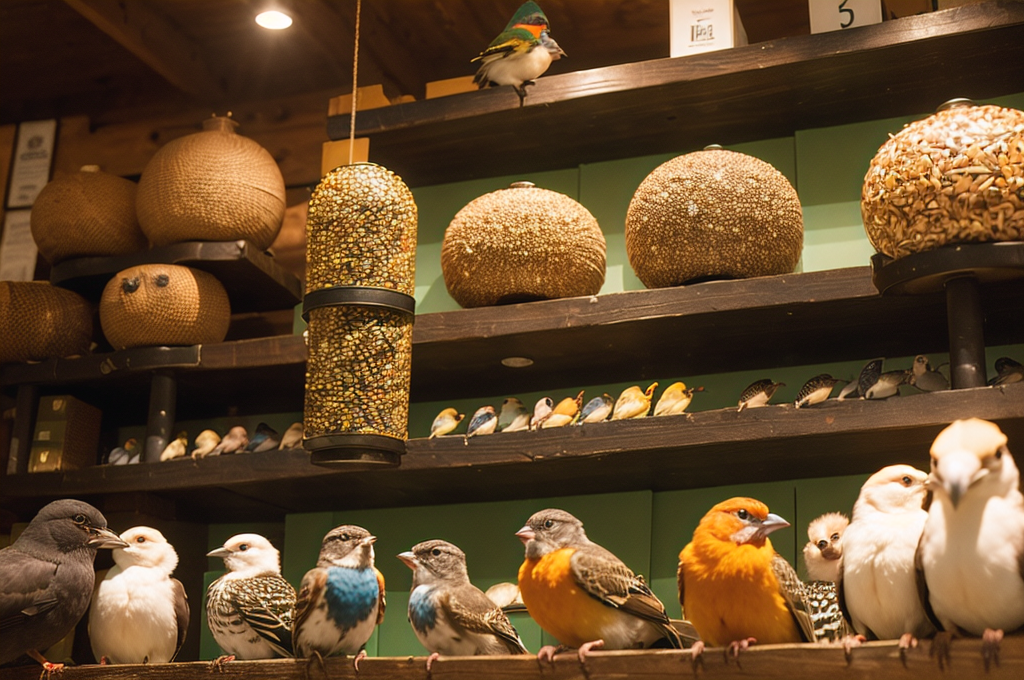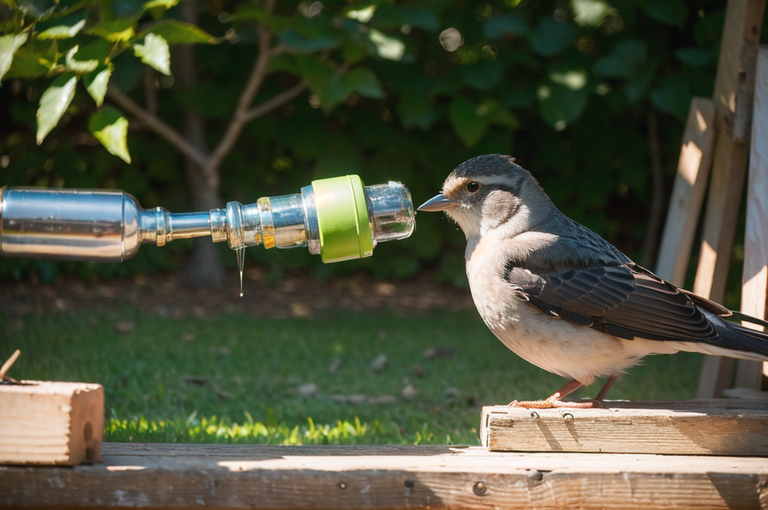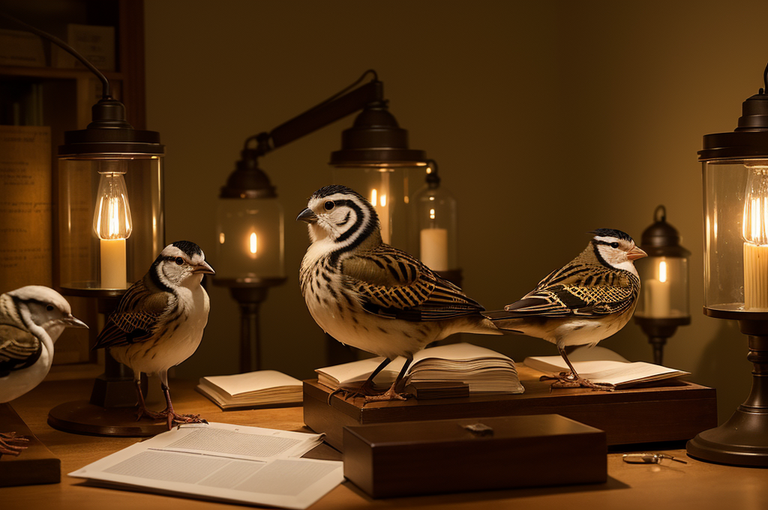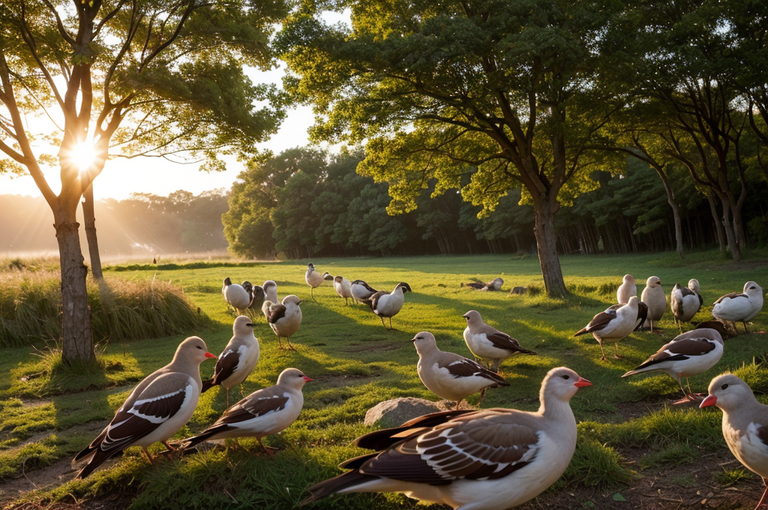Ensuring the Health and Safety of Wild Birds: Disease Prevention, Reporting, and More

The article discusses bird diseases, their prevention, and importance of reporting sick birds. It emphasizes cleanliness, awareness, reducing contamination, and ensuring physical safety for birds.
Understanding Bird Diseases
Observing the capricious dance of beautiful wild birds across the sky often leaves one enchanted by their freedom and resilience. Yet, like every living creature, birds too possess vulnerabilities. One such Achilles’ heel is their susceptibility to diseases.
Overview of Bird Diseases
An array of enigmatic diseases, like the notorious West Nile Virus, Aspergillosis, Salmonellosis, Finch eye disease, and Avian Pox, often lurks unseen in the underbelly of the bird realm. These diseases, while often invisible to the untrained eye, leave an indelible mark on our feathered friends.
Impact of Diseases on Bird Populations
The impact of these diseases is far from trivial; quite the antithesis. They harbor the potential to significantly impact wild bird populations. Like the rush of a mighty gust rattling an unsteady nest, they can upheave the avian world’s fragile balance, inducing nightmarish disruptions in the harmonious symphony of avian life.
Diseases Transmittable to Humans or Other Animals
On an even more sobering note, some of these avian ailments, such as Salmonellosis, cross the species barrier and strike the realms of humans and other animals. Penetrating through the walls of interspecies immunity, they contribute to a shared vulnerability, human and bird, a touching yet chilling reminder of the interconnected tapestry that is life on our shared planet Earth.
In exploring these diseases, we uncover a dimension of avian life often overlooked but crucial to understanding and protecting these captivating creatures. Remember friends, knowledge is not just power, but a beacon of protection for the creatures we love. Let’s harness this knowledge to safeguard their vibrant flights across our shared skies.

Disease Prevention in Birds
Ah, the sweet fluttering magic of winged creatures, scattered haphazardly on the canvas of cerulean skies! They can fill your hearts with glee, but let’s flutter on a more somber note for a moment: do wild birds carry diseases? Surprisingly, yes. But fear not fellow bird enthusiasts — we can make a difference by focusing on some simple and actionable bird disease prevention measures.
The Importance of Cleanliness around Bird Feeders
Like humans, our airborne companions flourish in clean environments. Maintaining cleanliness around bird feeders isn’t just about aesthetics — it can critically minimize the spread of bird diseases. Use a gentle brush to clean the feeders, and ensure the food remains dry to discourage the growth of fungus or bacteria. Remember, a clean feeder hosts healthy birds!
The Role of Quality and Fresh Food in Disease Prevention
The whimsical chirp of birds shouldn’t be dampened by diseases. With that in mind, the food we offer them becomes crucial. Quality and fresh food is a remarkable line of defense against diseases, just as for us. Avoid low quality seeds and ensure the food is free from any mold or dampness. The fresher the food, the healthier the bird!
Measures to Prevent Overcrowding at Bird Feeders
While the sight of numerous birds crowding a feeder is charming, it’s not ideal for them. Overcrowding can lead to faster spread of diseases amongst our feathered friends. Spacing out multiple feeders can encourage them to spread out, reducing contact and thus the risk of disease transmission.
In essence, healthy bird feeding habits not only ensure the well being of our avian friends, but also maintain the infectious pulse of life that birds bring to our surroundings. Let’s keep our skies echoing with the melody of healthy, lively birds!

Steps After Observing Sick Birds
Identification of sick or dead birds
Throughout my bird watching pursuits, there have been times when I’ve come across signs of disease or death among our winged companions. It saddens me, but also reminds me of the importance of immediate action. Swift identification of sick or dead birds can potentially hinder the transmission of diseases from wild birds to others within the avian community.
Importance of Acting Promptly
Like the early bird catching its worm, prompt action is crucial. Diseases from wild birds can quickly spread and decimate bird populations, altering eco systems and negatively affecting our environment. If we don’t act swiftly, we’re no better than the nonchalant crow, naively indifferent to the advancing hawk.
Reporting the Incident to Relevant Authorities
Upon identifying a bird showing signs of illness, I have always punctually informed the relevant authorities. Whether it’s the local or state health department, wildlife rehabilitation centers, or my trusty contacts at the local FWP office their expertise and resources can greatly assist in mitigating further dissemination of bird diseases. My fellow avian voyeurs, remember, our collective vigilance can prevent the ripple effects of diseases from wild birds, ensuring the survival and prosperity of the myriad species we so treasure and adore. Duly report every incident, no matter how inconsequential it seems. This could make an enormous difference in safeguarding the delightful diversity and mystery within our feathery friends’ world.

Promoting Safety Awareness Among Bird Feeding Communities
Just as a morning dove carries a seed to an open glade, I’m here to spread the word about safety among bird feeding communities. I have discovered a unique niche where my passion for birds and their safety can merge with my admiration for people who share this same endearing interest.
The Role of Spreading Stories and Information
Social media platforms aren’t just for posting selfies or pictures of meals. No, gentle reader, these platforms also serve as modern day forums for those like us, to share stories, photographs, tips, and information about safe bird feeding, spotting, and, yes, even about our favorite spots at wild birds unlimited gig harbor.
Encouraging Safe Bird Feeding Practices
Some people may raise an eyebrow about the importance of safe bird feeding. But those of us in the know understand that a human intervention that’s haphazard can disrupt delicate ecosystems and disturb the natural behavior of our feathered companions. Thus, it’s crucial we keep our fellow bird fanatics enlightened about safety measures. There’s a powerful joy in knowing we’re all nurturing our shared admiration for avian life responsibly.
Contributing to a Safer Environment for Birds
Promoting safety awareness isn’t just about instructions, it’s about fostering an understanding that our actions directly contribute to the preservation of avian sanctity. Just as the albatross carries its young under its wing, we too must guard and protect the safety of our avian friends. In doing so, we ensure that tomorrow’s sunrise will be met with the music of birds for generations of dawn admirers to come. After all, without birds just think of how quiet our mornings at wild birds unlimited gig harbor would be.
Ensuring Physical Safety and Food Safety for Birds
Just as the rooster announces the break of day, the importance of safeguarding our avian friends from harm heralds my message today. At this welcoming dawn, while enjoying the symphony of beautiful wild birds in my garden, I’m reminded of the crucial role we play in their life and survival.
Checking for Sharp Points or Edges in Bird Feeders
Akin to the discerning eye of a hawk, I urge you to inspect your bird feeders closely. Sharp points and edges can play the grim reaper in your bird’s survival tale. Aim to create a sanctuary, a safe haven for our winged companions for the promise of food should not hold a lurking danger to their wellbeing.
Proper Storage of Bird Food to Avoid Contamination
However, the food you provide is another matter entirely. Have you ever wondered, can do wild birds carry diseases? This thought should escalate your precautions. Inadvertent negligence in storing bird food can serve as the breeding ground for harmful bacteria and parasites. Make sure to keep the food at bay from rodents or any potential sources of contamination, much like a falcon protecting its nest from an impending predator.
Discarding Spoiled, Moldy, or Wet Food
Furthermore, the sight of spoiled, moldy, or wet food should resonate as a warning bell in your conscientious aviophilist’s mind. Harm to these cherubic souls can be as devastating as diseases from wild birds. I implore you to discard such food immediately, just as the sly night owl discards the bones of its prey. The essence here is that we must treasure this unique connection to the wild, and not endanger it unwittingly.
As I sit sipping my early cup of tea watching a red cardinal play at the Wild Birds Unlimited Gig Harbor feeder, I urge you all to remain vigilant. It is upon us to ensure these delicate creatures’ safety, their comfort, as they grace us with their ethereal melodies every dawn.


